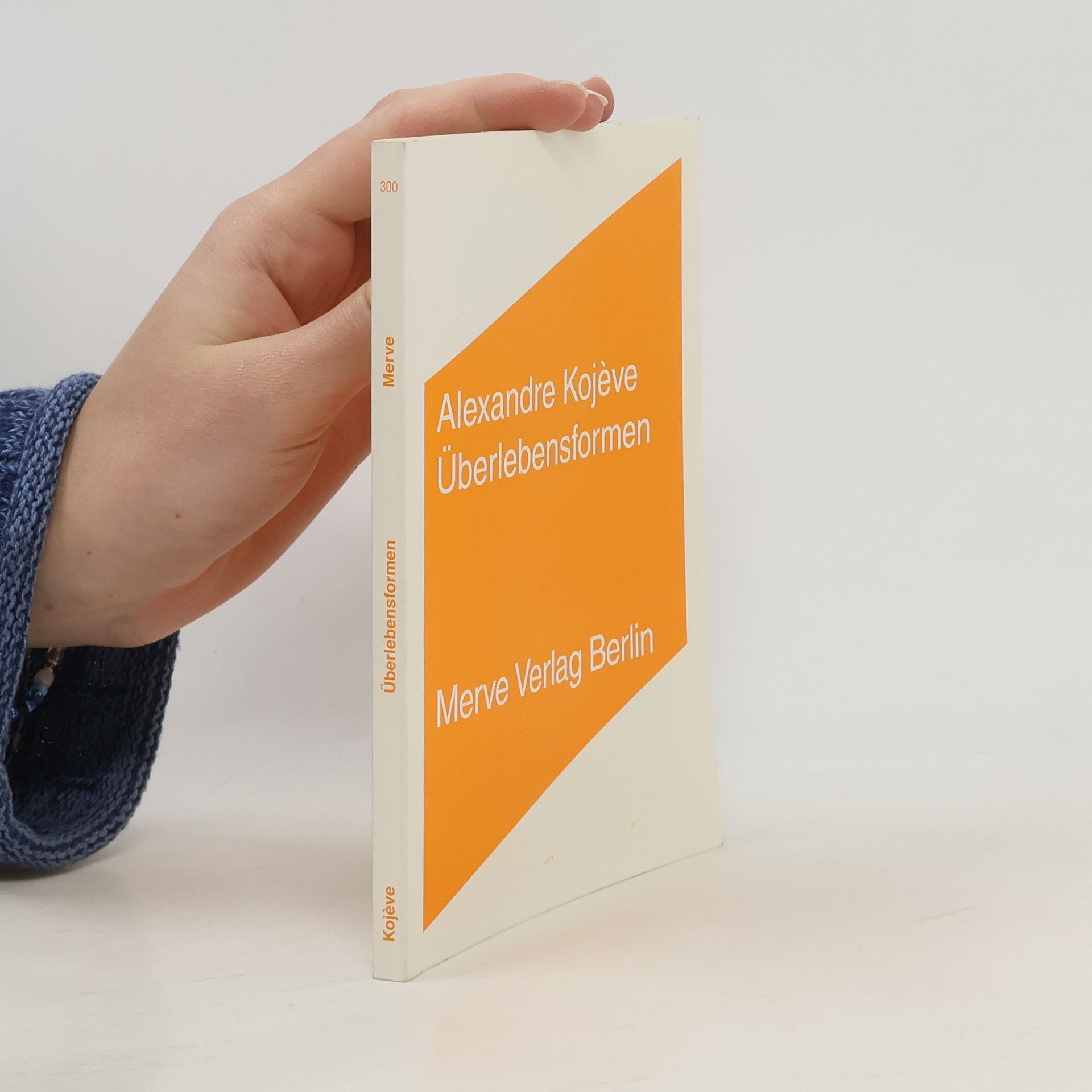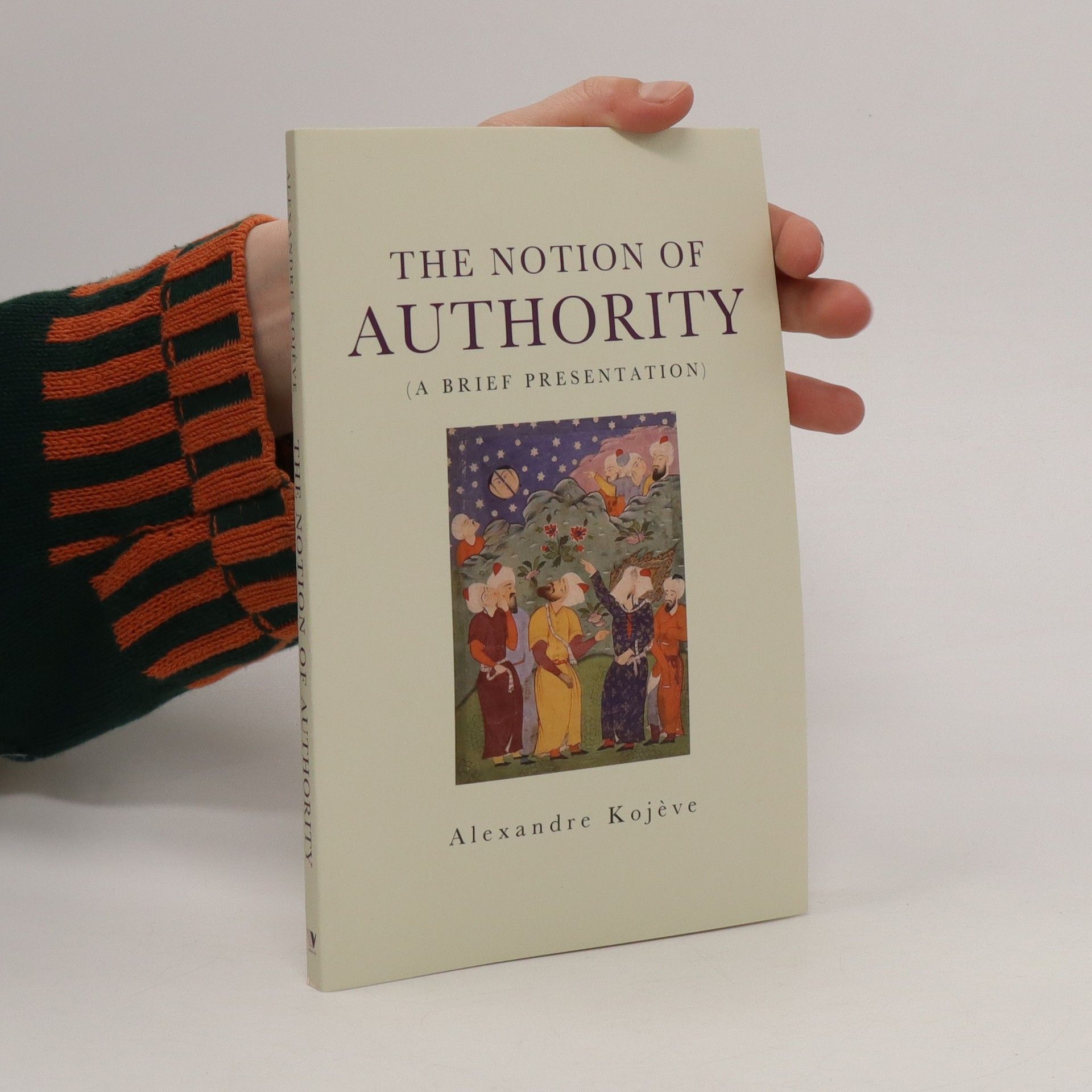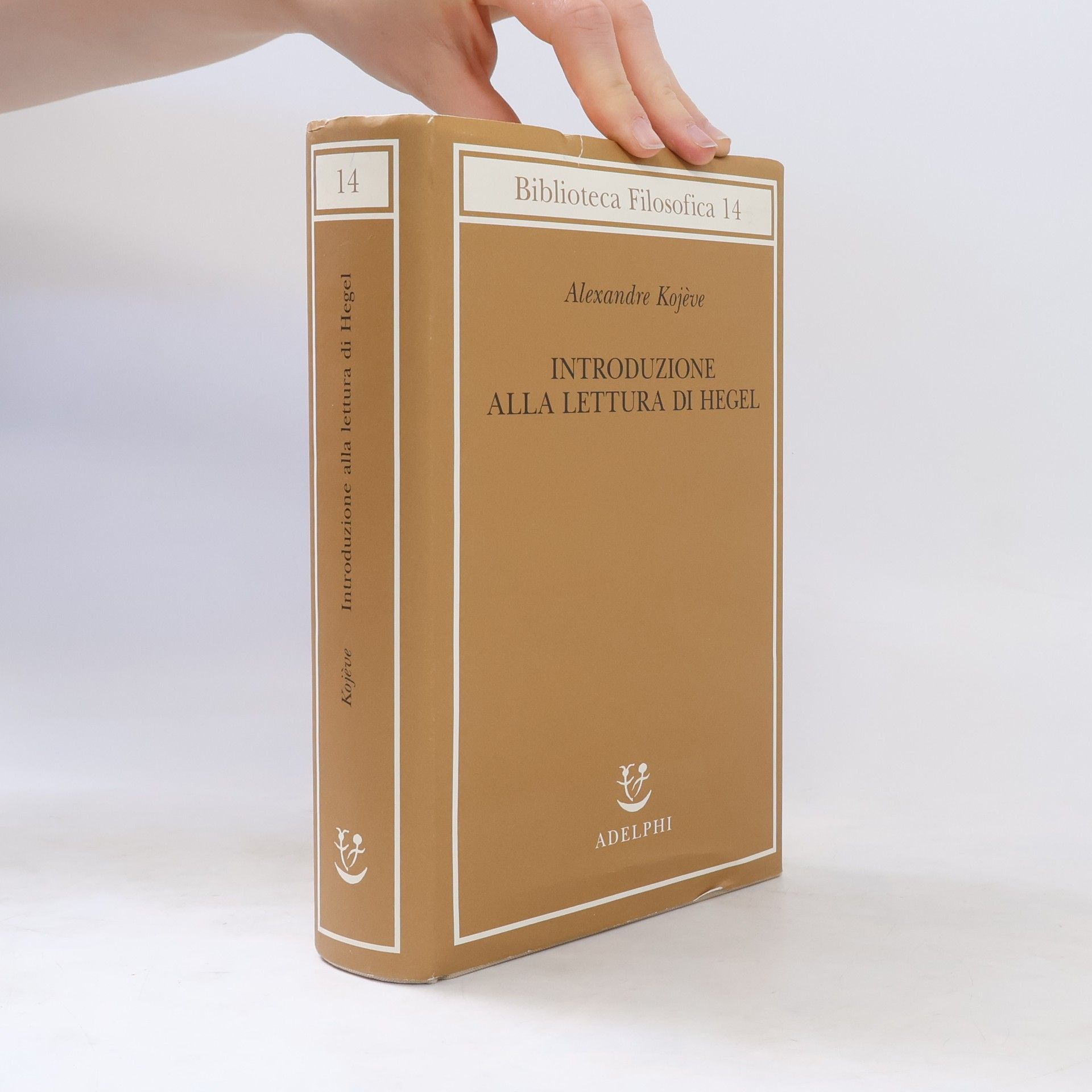Introduzione alla lettura di Hegel
- 770pagine
- 27 ore di lettura
Alexandre Kojève fu un filosofo e statista francese di origine russa. I suoi seminari filosofici influenzarono profondamente la filosofia francese del ventesimo secolo, in particolare attraverso la sua integrazione di concetti hegeliani nella filosofia continentale. Come statista nel governo francese, ebbe un ruolo fondamentale nella creazione dell'Unione Europea. Kojève intrattenne un dialogo filosofico duraturo con il suo stretto amico, Leo Strauss.






This collection of lectures shows the intensity of Kojeve's study and thought and the depth of his insight into Hegel's Phenomenology of Spirit.
In The Notion of Authority, written in the 1940s in Nazi-occupied France, Alexandre Kojève uncovers the conceptual premises of four primary models of authority, examining the practical application of their derivative variations from the Enlightenment to Vichy France. This foundational text, translated here into English for the first time, is the missing piece in any discussion of sovereignty and political authority, worthy of a place alongside the work of Weber, Arendt, Schmitt, Agamben or Dumézil. The Notion of Authority is a short and sophisticated introduction to Kojève’s philosophy of right. It captures its author’s intellectual interests at a time when he was retiring from the career of a professional philosopher and was about to become one of the pioneers of the Common Market and the idea of the European Union.
Atheism is an erudite and open-ended exploration of profound questions of estrangement, death, suicide, and the infinite that demonstrates the range and the provocative power of Alexandre Kojeve's thought.
Alexandre Kojève soll 1967 in Westberlin, wo er auf seinem Weg von Peking nach Plettenberg einen Zwischenstopp eingelegt hatte, den revoltierenden Studenten auf die Frage „Was tun?“ geantwortet haben, sie sollen Griechisch lernen. So will es die Legende. Doch Legenden, und zunächst als solche fristet Kojève sein dürftiges Nachleben in Deutschland, neigen seit alters dazu, zu verblassen. Hier hilft nur Text: Etwa jene Fußnote, die in der deutschen Ausgabe der Hegeleinführung fehlt. Nachgeliefert wird sie von dem unvergesslichen Jacob Taubes in seinem Aufsatz „Ästhetisierung der Wahrheit im Posthistoire“. Sie stellt ein weiteres Mal die Frage, was aus dem sogenannten Menschen wird am Ende der Geschichte, ein Tier oder womöglich doch ein Snob. Bereits in den 50er Jahren hatte Kojève in zwei Rezensionen für „Critique“ gemutmaßt, welche Wesen eine kommende Gemeinschaft bevölkern könnten: untätige Gauner (le voyou desœuvré) und junge Mädchen (la jeune fille). Bataille war erwartungsgemäß entsetzt. Seine „arbeitslose Negativität“ wollte sich den „Sonntag des Lebens“ bekanntlich auf heiligere Weise vertreiben. Kojève behält das letzte Wort: In einem Interview, das Gilles Lapouge für die „Quinzaine littéraire“ mit dem Philosophen und Staatsbeamten führte. Es erschien im Juli 1968 postum; Kojève war am 4. Juni während eines Vortrags in Brüssel gestorben, wo er auch begraben liegt.
Rédigé en 1931, "L'athéisme" présente l'amorce d'une anthropologie et théiste et athée, que l'auteur reprendra plus de vingt ans plus tard. Cet essai représente donc, aux côtés de.
La philosophie hellénistique. Les néo-platoniciens
in8. Broch. 532 pages. couv usage int bon dos bruni signature
In dieser frühen Schrift, einem Schlüsseltext, setzt sich Kojève auf unorthodoxe Weise mit der modernen Physik auseinander, insbesondere Zenons Paradoxen, der Mengenlehre, Mathematik und Zeitbegriffen aus der deutschen Phänomenologie (Heidegger). Auf den ersten Blick scheint dieser Diskurs weit entfernt von Kojèves Interesse an Hegel, für das er vor allem bekannt ist. Ganz im Gegenteil stellt die Arbeit zur Physik jedoch eine konzeptuelle Grundlage für seine originelle Hegeldeutung dar. Wie er im Text konstatiert, ist die neue Physik — besonders Quantentheorie und Atomphysik — eine Hegelianische Wissenschaft par excellence: sie ist die erste Physik, die »›für sich‹ das, was sie ›an sich‹ ist.«